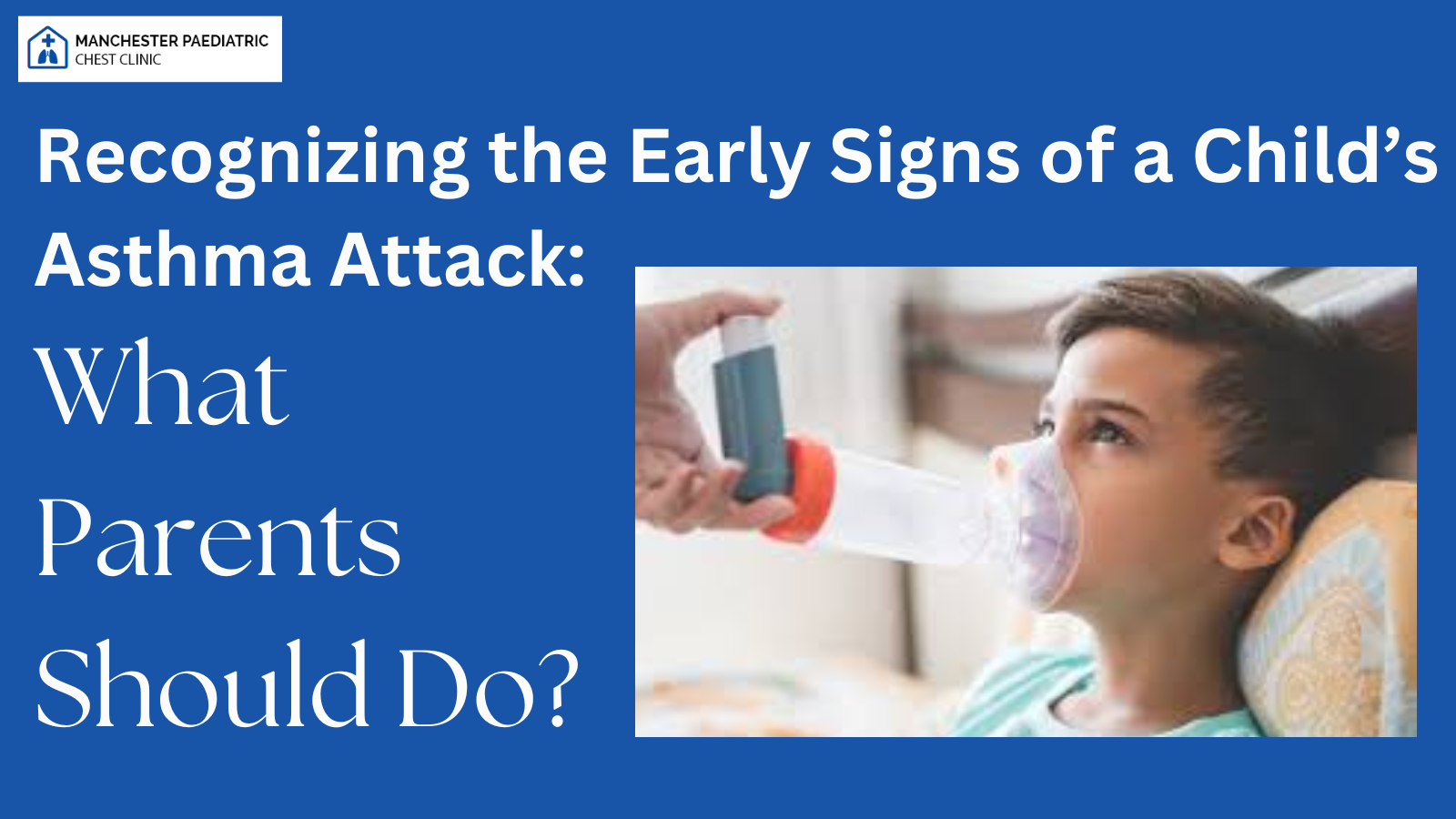Asthma is one of the most common chronic conditions affecting children, and managing it effectively is crucial for their well-being. Early recognition of an asthma attack can prevent severe episodes and ensure that children receive prompt treatment. As parents, understanding the signs and knowing what to do when your child experiences an asthma attack can make a world of difference. We will help you identify the early warning signs and provide practical steps to take, including when to seek help from an expert by searching for “asthma doctor near me.”
Early Signs of an Asthma Attack
Wheezing
Wheezing is a high-pitched whistling sound when your child breathes. It occurs because the airways have become narrow and inflamed, making it difficult for air to pass through. If you notice your child wheezing, it’s a good idea to consult a pediatric asthma doctor near you for a professional assessment.
Frequent Coughing
Coughing is often the first and most noticeable sign of an asthma attack, especially at night or after physical activity. A cough specialist in Manchester can help you determine whether the coughing is due to asthma or another condition, such as a respiratory infection. Persistent coughing that doesn’t go away or worsens during certain times of the day should never be ignored.
Tightness in the Chest
Younger children may have difficulty describing how they feel, but they may complain about a tight or heavy feeling in their chest. This tightness is caused by the tightening of the muscles around the airways, making it harder to breathe.
Fatigue
Asthma can cause fatigue due to the extra effort required for breathing. If your child appears unusually tired, especially after mild activities, this could be an early warning sign of an impending asthma attack. Monitoring your child’s energy levels and breathing patterns can help you catch asthma symptoms early.
Shortness of Breath
Children with asthma may experience shortness of breath, even when performing minor activities like playing or walking. This symptom can worsen if left untreated, leading to more severe respiratory distress. Keep an eye on how your child breathes during everyday activities and seek advice from Manchester Child Lung Clinic if shortness of breath becomes a recurring issue.
What Parents Should Do
Administer the Prescribed Medication
If your child has been diagnosed with asthma, they will likely have a prescribed inhaler or other medication for emergencies. Make sure you know how to use your inhaler properly, and keep it accessible at all times. Administer the quick-relief inhaler as soon as the early symptoms appear. These medications, known as bronchodilators, help open the airways and improve breathing.
Monitor the Severity of Symptoms
After administering the inhaler, keep a close eye on your child’s symptoms. If they do not improve within 10 to 15 minutes or worsen, it’s essential to seek immediate medical attention. Having a relationship with a cough specialist doctor in Manchester or a private respiratory paediatrician can give you peace of mind and quicker access to specialised care.
Ensure a Calm Environment
Children can become scared during an asthma attack, and anxiety can worsen their symptoms. Keep your child calm by reassuring them that they will be okay and encouraging slow, steady breaths. Panic can make breathing even more difficult, so remaining calm is key.
Track Symptoms Over Time
It’s helpful to maintain a journal of your child’s asthma symptoms, noting what triggers them and how often they occur. This record can assist healthcare providers in adjusting treatment plans and identifying patterns that could help in preventing future attacks.
When to Seek Professional Help
If your child’s symptoms persist despite using their inhaler, or if they frequently have asthma attacks, it’s time to search for “pediatric asthma doctor near me.” Specialists such as those at the Manchester Child Lung Clinic can provide a comprehensive asthma management plan, ensuring your child receives the best possible care. Regular check-ups with a private respiratory paediatrician can help keep asthma under control, reducing the frequency and severity of attacks.
Preventing Future Asthma Attacks
Identify and Avoid Triggers
Asthma triggers can range from allergens like pollen and dust mites to environmental irritants like smoke or pollution. Discuss with your healthcare provider or a cough specialist doctor in Manchester about ways to minimise exposure to triggers.
Maintain a Healthy Lifestyle
Keeping your child active and ensuring they eat a balanced diet can strengthen their immune system and improve overall lung function. However, make sure any exercise is moderate and avoid pushing them too hard, as physical exertion can sometimes trigger symptoms.
Regular Medical Check-ups
Routine appointments with a cough specialist in Manchester or a private respiratory paediatrician can help ensure that your child’s asthma is well-managed. These specialists can adjust medications as needed and provide valuable advice on preventing future attacks.
Conclusion
If you notice frequent symptoms like coughing, wheezing, or shortness of breath, don’t hesitate to consult a pediatric asthma doctor near you or a cough specialist in Manchester. With proper management and preventive care, you can help your child lead a healthy and active life despite their asthma diagnosis.

